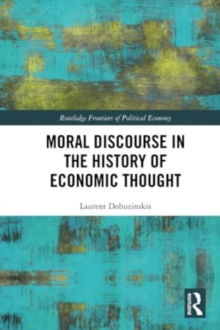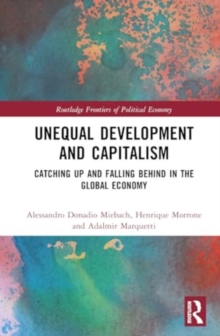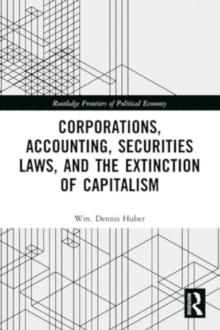
Economic Woman : Gendering Inequality in the Age of Capital PDF
by Frances Raday
Part of the Routledge Frontiers of Political Economy series
Description
The author introduces the concept of economic woman and makes her visible in duality with and opposition to the exclusive model of economic man. Economic man has epitomized neo-liberal capitalism, which embraces competition and maximization of profit, resulting in a steep increase in economic inequality. The book demonstrates that women's inequality is a crucial factor in economic inequality, which cannot be fully understood without relating to women's situation, and that economic woman cannot thrive in the conditions of economic inequality created under global neo-liberalism.
Emphasising the international human rights guarantees of women's right to equality in all fields of life, the author documents woman's increased participation in political, public, financial and corporate institutions, employment and entrepreneurship, with some women reaching high profile positions. Nevertheless, using global data, she reveals that economic woman lags behind, with a severe economic power deficit, an unfulfilled promise of equal employment opportunity, a gendered impact of poverty and barriers to gender equality in the family. The book analyses the trap of women's increased burden of breadwinning in the context of discriminatory laws and practices, infrastructural failures and policy gaps, which preempt achievement of gender equality in economic life.
The book is intended for the general reader, academics, students, policy makers and NGOs. It shows economic woman at a global crossroads between a universal paradigm of gender equality and pervasive barriers to equal economic opportunity. The author demonstrates that tackling gender inequality, restoring welfare priorities and reducing economic inequality are inextricably linked. Human rights and governments have a vital role to play in addressing them all, to create a sustainable economic infrastructure for the lives of women and men.
Information
-
Download - Immediately Available
- Format:PDF
- Pages:262 pages
- Publisher:Taylor & Francis
- Publication Date:14/05/2019
- Category:
- ISBN:9781317281320
Other Formats
- Paperback / softback from £39.99
- Hardback from £130.00
- EPUB from £32.39
Information
-
Download - Immediately Available
- Format:PDF
- Pages:262 pages
- Publisher:Taylor & Francis
- Publication Date:14/05/2019
- Category:
- ISBN:9781317281320










